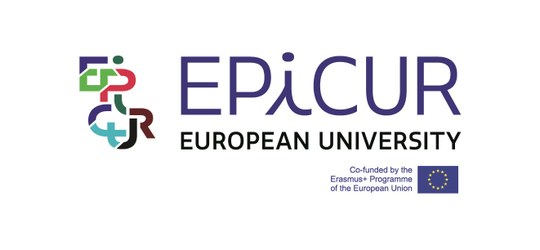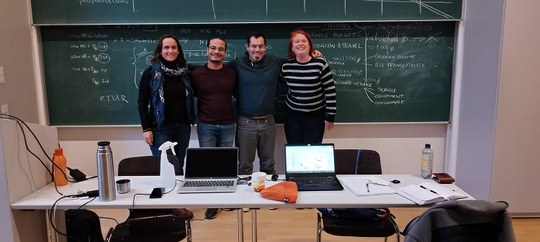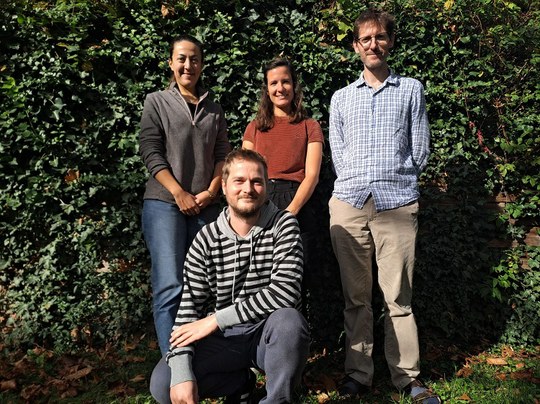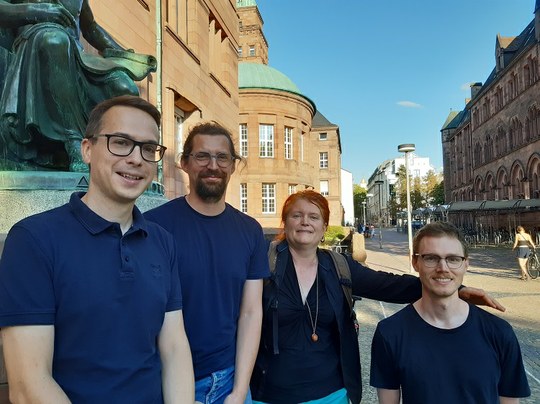Successful Start to First Round of EPICradles
Freiburg, Jan 25, 2023
Is it possible to realize interdisciplinary and transdisciplinary research projects together with junior researchers from other European universities and receive financial support for it? EPICradles offers just such a unique opportunity – three-month, hybrid, funded fellowships enabling interdisciplinary teams of junior researchers to develop research projects that are challenge-based and beneficial to society. The projects address broad themes such as Sustainability, Mobility/Migration/Identity and Public Health – also known as EPIChallenges. With EPICradles, EPICUR Research wants to strengthen European cooperation in the field of research, improve research infrastructure and bring in partners from outside higher education. The first round of the pilot project took place between September and December 2022, with scholarships awarded by the University of Freiburg.

The first phase of the three-month fellowships began in September 2022 with a virtual collaboration phase. This was followed in October-December 2022 by an investigative and team-building phase when the research groups met up twice at one of the EPICUR universities. The groups were hosted for these two-week visits by the University of Freiburg and its research institutes, as well as other EPICUR partner universities such as the University of Natural Resources and Life Sciences Vienna, Austria, and the Aristotle University of Thessaloniki, Greece. Their research visits meant that the researchers could connect personally, share individual research ideas and methods and develop joint projects for future research cooperations. In addition, the groups invited experts from the University of Warsaw, Poland, the Aristotle University of Thessaloniki, and the University of Freiburg.
 Epic-P group during a stay at the University of Freiburg; Photo: Mercedes Küffner
Epic-P group during a stay at the University of Freiburg; Photo: Mercedes Küffner
Four new work groups established with researchers at different career stages
Four research groups responded to the Call for Participation and were accepted by the selection committee for the scholarship due to the high quality of their research proposals. The groups brought together researchers at various career stages and from at least three different EPICUR countries. The groups’ topics range from projects on co-constructing sustainable farm practices against pest infestation (“Co-Con”), through an interdisciplinary approach for identifying promising solutions on the emerging challenge of phosphorus recycling (“Epic-P”), sustainable regional production and consumption in Europe (“Sustainable Regional Production”) and metaphorizing the experience of home and migration for more inclusive local policies (“De-Heimatization”).

Sustainable Regional Production group. Photo: Eva Rüskamp
- The researchers from the “Co-Con” work group are Gaël Bohnert (University of Haute Alsace), Laura Comella (UFR), Eleni Yiacoumi (Aristotle University of Thessaloniki) and Simon Haberstroh (University of Freiburg).
- The “Epic-P” group consists of Jamerson Oliveira (University of Haute Alsace), Glykeria Duelli (Karlsruhe Institute of Technology) and Georgia Giannopoulos (Aristotle University of Thessaloniki).
- The “Sustainable Regional Production” group comprises Christian Dorninger (University of Natural Resources and Life Sciences Vienna), Stefanie Klose (UFR), Calum Brown (Karlsruhe Institute of Technology), Melis Aras (University of Strasbourg) and Nathalie Spittler (University of Natural Resources and Life Sciences Vienna).
- The “De-Heimatization” group brings together Jacek Kubera (Adam Mickiewicz University in Poznań), Maciej Frackowiak (Adam Mickiewicz University in Poznań), Georgia Sadikoudi (Aristotle University of Thessaloniki) and Sebastian Will (University of Freiburg).
 De-Heimatization group during their stay at the University of Freiburg; Photo: Mercedes Küffner
De-Heimatization group during their stay at the University of Freiburg; Photo: Mercedes Küffner
Researchers plan further cooperation within EPICUR
The first round of EPICradles was rounded off in December 2022 with a closing event that offered EPICradle participants the opportunity to discuss their interdisciplinary experiences and their hopes for future cooperations as part of the EPICUR Pathway to Research, and reflect on what they learned from the format, the challenges and the findings. Drawing on different methods and approaches to tackle the challenges proved a valuable experience in general.
The next step for the EPICUR Pathway to Research is the EPICluster mobility program, which is coordinated by the University of Strasbourg. For more information please click here.

